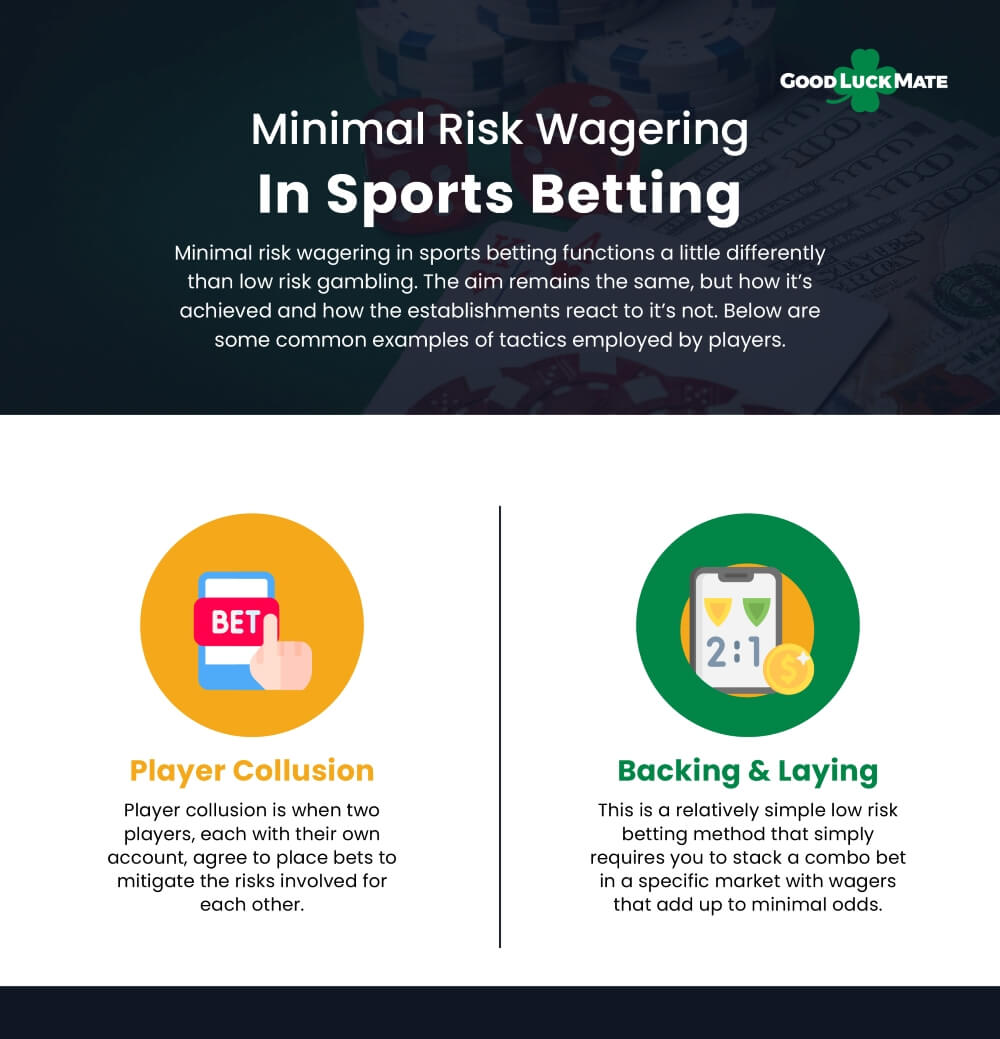Best Electronics Insights
Your go-to source for the latest in electronics news and reviews.
Betting Without a Wager: The Myth of Risk-Free Gambling Systems
Discover the truth behind risk-free gambling systems and why betting without a wager is just a myth. Uncover the risks before you play!
The Illusion of Risk-Free Betting: Understanding the Myths
In the world of sports betting, the promise of risk-free betting often lures in both novice and experienced bettors alike. However, this notion is largely an illusion. Many believe that by utilizing various promotional offers, such as no-risk bets or money-back guarantees, they can engage in betting without any financial repercussion. The reality is that even the most finely crafted promotions come with caveats, terms, and conditions that can lead to unexpected losses. It's essential for bettors to understand that every wager carries some level of risk, often hidden behind the enticing marketing of these offers.
Moreover, bettors frequently underestimate the psychological factors at play when dealing with risk-free bets. The excitement of wager placement can lead to reckless decisions, compelling individuals to bet more than they intended or on outcomes they haven't fully researched. It’s crucial to recognize that risk-free betting is not synonymous with guaranteed profits; instead, it can create a false sense of security. As a bettor, fostering a disciplined approach and being aware of the inherent risks involved will ultimately lead to a more sustainable betting strategy and a better understanding of the game.

Counter-Strike is a popular tactical first-person shooter game that emphasizes teamwork and strategy. Players are divided into two teams, terrorists and counter-terrorists, each with specific goals. For those looking to enhance their gaming experience, using a stake promo code can provide access to various in-game rewards and bonuses.
Are There Truly Risk-Free Gambling Systems? An In-Depth Exploration
When it comes to gambling, the allure of a risk-free gambling system is often a tantalizing prospect for players seeking to maximize their winnings while minimizing losses. However, the reality is that all gambling inherently involves risk. Many systems, such as the Martingale or Fibonacci methods, propose strategies that promise profit through systematic betting. Yet, these methods often ignore the fundamental principles of probability and the house edge, which ensure that no system can guarantee success over the long term. It is crucial to understand that while some systems may appear to be effective in the short term, they ultimately do not eliminate risk but rather emphasize the psychological aspects of betting behavior.
Moreover, the concept of a risk-free gambling system can be misleading, as it often relies on unrealistic expectations and can lead to significant financial losses. Gamblers are often enticed by claims made by various guides and systems that suggest strategies to beat the odds. In reality, the only truly safe approach to gambling is to treat it as a form of entertainment rather than a reliable income source. Responsible gambling involves setting limits, understanding the odds, and recognizing when to walk away. Thus, rather than succumbing to the myth of risk-free systems, players should focus on informed decision-making and enjoy the thrill of the game while maintaining a healthy respect for risk.
The Mathematics of Betting: Why No Wager Equals No Gain
The world of betting is often clouded in chance and luck, but at its core lies a mathematical framework that dictates the outcomes of wagers. Understanding this framework is crucial for anyone looking to engage in betting, whether for fun or profit. When you consider the phrase 'No Wager Equals No Gain', it becomes clear that without placing a bet, one cannot expect to achieve any form of return. In essence, every potential gain is directly correlated to a calculated risk, requiring not just luck, but informed decision-making based on quantitative analysis.
Many bettors overlook the importance of math in their gambling strategies, focusing solely on emotional decisions or gut feelings. However, successful betting relies on understanding odds, probabilities, and potential outcomes. By applying the principles of probability and risk management, bettors can maximize their potential gains while minimizing losses. This alignment of strategy and mathematics underscores the principle that 'No Wager Equals No Gain', reinforcing the idea that the absence of action will inevitably lead to missed opportunities and stagnant growth in one's betting endeavors.